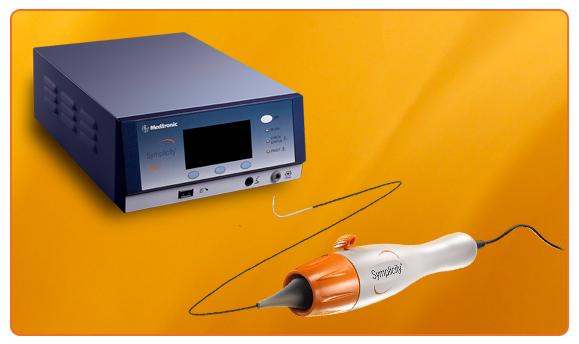
March 12, 2013 — Medtronic Inc. announced the U.S. Food and Drug Administration (FDA) and the Centers for Medicare and Medicaid Services (CMS) have accepted the inclusion of the Symplicity renal denervation system for treatment-resistant hypertension in their parallel review program, which will allow CMS to begin consideration for national coverage determination while the FDA completes its review of safety and efficacy. The Symplicity renal denervation system currently is only available for investigational use in the United States.
The Symplicity renal denervation system is one of the first medical devices to participate in the pilot program for concurrent review, designed to facilitate the development of innovative new products and increase the efficiency of the review processes for both agencies. The two federal agencies accepted the Symplicity renal denervation system into the parallel review pilot program through a selection process that is limited to a few innovative devices per year.
The parallel review will be based primarily on results from Symplicity HTN-3, Medtronic’s U.S. clinical trial of the Symplicity renal denervation system for treatment-resistant hypertension. In August 2011, the FDA approved Symplicity HTN-3, allowing Medtronic to become the first company to conduct a randomized, controlled trial of renal denervation in the United States. Enrollment in this study is ongoing and expected to be complete by the summer of 2013.
“We are pleased that FDA and CMS have accepted the Symplicity renal denervation system for parallel review. This joint review represents a significant step forward in accelerating patient access to renal denervation in the U.S.,” said Sean Salmon, senior vice president and president, coronary and renal denervation, Medtronic. “We look forward to working with both agencies to ensure an efficient and timely review so that we may offer a new treatment option for the millions of people with treatment-resistant hypertension in the U.S.”
Symplicity HTN-3 is a single-blind, randomized, controlled trial designed to evaluate the safety and effectiveness of renal denervation with the Symplicity renal denervation system in patients with drug-resistant hypertension. The study will randomize 530 patients in up to 90 U.S. medical centers; patients in the clinical trial will be randomized to receive either renal denervation and treatment with anti-hypertensive medications or treatment with anti-hypertensive medications alone. The primary endpoints of the study are the change in blood pressure from baseline to six months following randomization and incidence of major adverse events one month following randomization.
Renal denervation therapy is a minimally invasive, catheter-based procedure that modulates the output of nerves that lie within the renal artery wall and lead into and out of the kidneys. The nerves passing to the kidneys are part of the sympathetic nervous system, which affects the major organs that are responsible for regulating blood pressure: the brain, the heart, the kidneys and the blood vessels.
For more information: www.medtronic.com, www.symplifybptrial.com


 January 05, 2026
January 05, 2026 









